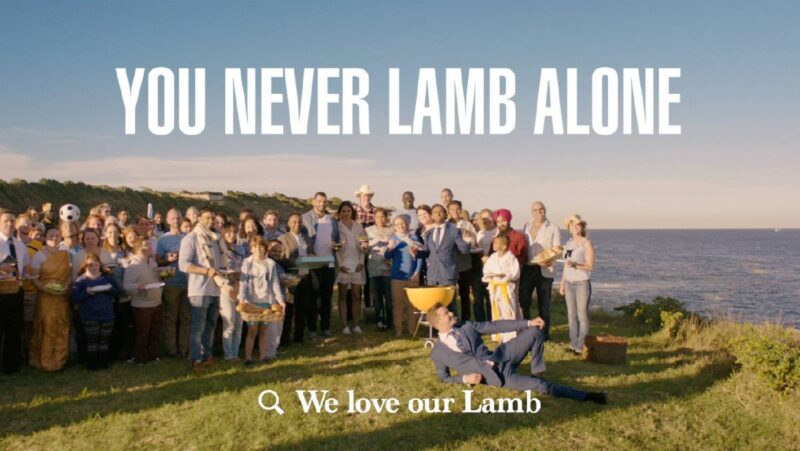Let’s talk about death and other scary topics
Human nature is to avoid discussing topics preferred to be avoided. The behavioural norm is to act in a way to make ourselves feel better. Thinking about unpleasant, yet likely important matters, is typically seen as best procrastinated. Yet, the risk of sticking our heads in the sand is creating risk that could have been easily avoided.
Some consistent patterns emerge across our research on sensitive issues. From problems gambling; to physical, mental and sexual abuse; to getting a cancer check and other health assessment; or planning for flooding or bushfires; workplace safety; getting a will; to planning towards one’s retirement years; end of life; and planning the inevitability of death are typically avoided until absolutely necessary, and often too late.
Three reasons why people avoid challenging topics
1. Optimism bias and ‘others’ are at a higher risk
Human nature is to believe that the people at risk are others, not themselves. The likelihood of others suffering a bad situation is perceived greater for others than themselves. People compare themselves to others in the wider community, and believe they are of lower risk.
For example, we have conducted research in bush fire regions where identical areas have been severely impacted, yet still there is a disassociation. In our research, typically people view social education messages from health to retirement planning as aimed at ‘others’ as they perceive they will be likely okay, and the campaigns are not aimed at themselves personally.
2. There is a tendency to put one’s head in the sand for some topics
The ‘ostrich effect’ was originally applied to financial sectors as the “the avoidance of apparently risky financial situations by pretending they do not exist.” It could be broadened to avoiding exposing oneself to information that may cause psychological discomfort. People prefer to avoid the unpleasant.
Our recent research about end of life planning, reveals people not wanting to think about such plans, and even if they tried to discuss plans with partners and children, this was typically met with “I don’t want to talk about it!” Discussing death and other sensitive topics is often viewed as ‘bad luck.’
3. People tend to procrastinate even the inevitable and dangerous
Unpleasant tasks are typically avoided until absolutely necessary. Sitting down to prepare a flood plan, saving for the future, write a will or discuss funeral preferences with family, will typically be viewed as best avoided until absolutely necessary. Weeks of procrastination become months, years and often never. This can lead to unpleasant repercussions.
Research we have conducted, reveals low levels of planning of households in fire and flood risk areas. And, in most situations when the unexpected occurs, households are destroyed without adequate insurance and preparation.
Three ways to overcome …
1. Normalise the conversation
The first step in ensuring people give adequate consideration and planning to sensitive topics, is to normalise discussion around it. This is underpinned by the behaviour change principle that people are driven by social norms and what others do. Much more than community education campaigns, enabling active discussion on such topics is critical.
Active debate around controversial topics such as marriage equality, mental health and domestic abuse have significantly evolved over recent years, largely from normalising conversation on the topics, with friends, family, workmates, social-media ‘friends,’ the hairdresser and more.
In our research challenging topics are seldom discussed, and simply starting the discussion in focus groups opens an easy and pragmatic conversation, and keenness to then discuss with friends and family. Giving permission to discuss a challenging topic is an important first step in normalising the conversation. Behaviour change theory notes that the salience of topics infers that attention is drawn to topics that seem novel and relevant to them.
2. Make it easy to do the right thing
Even with the best intentions, if the right thing is hard to do, it will be procrastinated. Simple steps to identifying ‘do I have a problem’ and ‘how do I know if a loved one has a problem’ are critical. Knowing when someone’s behaviour has strayed from normal towards risky — e.g. measures of standard alcoholic drinks per day sets healthy limits, but how does someone know if their gambling is a problem?
Often it is important to target the individual as well as their friends, family and others, as self diagnosis can be hard or impossible, particularly for people suffering addictive, compulsive behaviour or otherwise cognitively impaired. Normalising and providing guidance on confronting someone with a potential problem or need to discuss is important. We’ve conducted work on topics such as bowel cancer screening amongst blue collar males to excessive alcohol consumption amongst partying young people, and it is relatively simple to prime and ignite conversation amongst groups of friends at a pub or elsewhere, particularly if they can sense a concern.
Following identifying if a problem exists, it is important to provide steps to easily resolving. This might be via an easy online form, App or phone call or a simple and easy to find and understand list of steps or where professional help can be obtained. In research we conducted in relation to youth relationship violence, a group of vulnerable young people noted “it is happening, but we just don’t know what to do to stop it!”
In many sensitive topics from abuse to problem gambling and quitting smoking, accessing ‘Help’ services can be viewed as potentially judgemental, embarrassing, lacking empathy, of no value, and only considered when they hit ‘rock bottom’ and they have failed multiple times in their DIY efforts. So, normalising and demystifying such services that early interventions is worthwhile. The sooner people seek help, the better. What will happen when they call or connect?
Behaviour change theory notes that establishing clear and easy defaults is important, as people prefer to ‘go with the flow’ of pre-set simple options. Making it easy to identify social norms and steps towards appropriate behaviour is critical.
3. Make the right behaviour the norm
Conversations start and end, and without constant reminding, it is likely that any short-term changes in attitude and behaviour will revert to old habits. It is therefore important to keep the discussion moving and evolving. Behavioural psychology notes that people have a tendency towards relapsing into old ways, even with the best intentions. Normalising and even rewarding the right behaviour as the easy default is critical, rather than reinforcing the wrong behaviour.
This may be via advertising and digital campaigns keeping the conversation active. There is much research illustrating what makes some social behaviour change campaigns work better than others — e.g. engaging the audience, committing to a clear message, illustrating the right behaviour and defining the consequences and associated enforcement of the wrong etc.
Normalising the right behaviours and penalising the wrong. Being clear that the road speed limit is strictly adhered to without a tolerance or clear communication of workplace safety standards is about right and wrong. Communicating that enforcement is likely if ignored, will impact change.
Also critical is continuously evolving from lessons as to what tools and resources are more and less valuable in prompting conversations and action. Social messages such as road safety and anti-smoking took decades to have a major impact, and evolution of the education messages and interventions continue.
………
Ultimately it comes back to normalising conversation about delicate topics and providing adequate tools, prompts and strategies to nudge people in the right direction. People are complex, have much cognitive bias and do much of what they do for sometimes rational and other times irrational reasons. A deep understanding of drivers and inhabitants is valuable in influencing people to make better decisions about hard topics.
There are many examples of sensitive topics that have now become normal conversations. The RUOK campaign has played a critical role in normalising conversation about mental health and groups such as the Jodi Lee Foundation have opened a dialogue and action surrounding bowel cancer and early detection.
Across our research, word-of-mouth marketing has and likely always will be the biggest driver to attitude and behaviour change, irrespective of whether the objective is building brand reputation, encouraging people to go to an event or experiences or enabling social change. This continues to still be largely driven by old fashioned mouth-to-ear conversations (70% from across our research studies).
Yet, social media such as Facebook and Twitter are playing an increasing role in turbo driving discussions surrounding sensitive topics, spreading the conversation faster, and more efficiently than ever before providing tools, resources and support. Technology offers many opportunities to make the unease around sensitive topics far easier and quicker to deal with, plan and avoid associated risks.
There is much opportunity to normalise and desensitise conversations about otherwise sensitive topics, and make the right behaviour easier, from problem gambling, to supporting important causes and ensuring an updated will is in place, and reducing associated risks of ignoring the unpleasant.
There are entrepreneurial gaps just waiting for business, governments and start-ups to deal with such issues better. Innovations to overcome people deflecting away sensitive topics and putting their head in the sand. To step over the procrastination and deal with such issues. Good luck!





